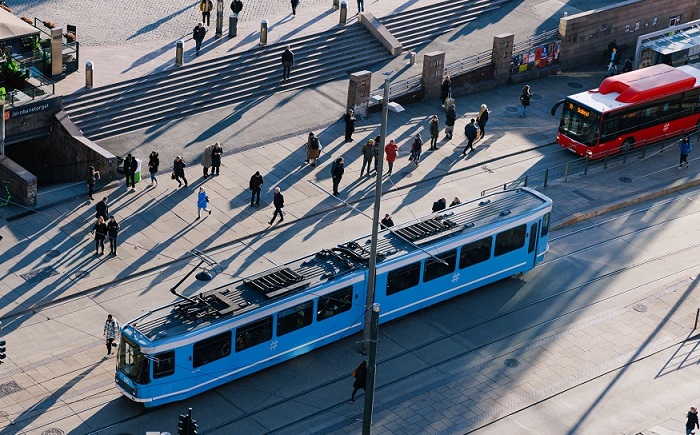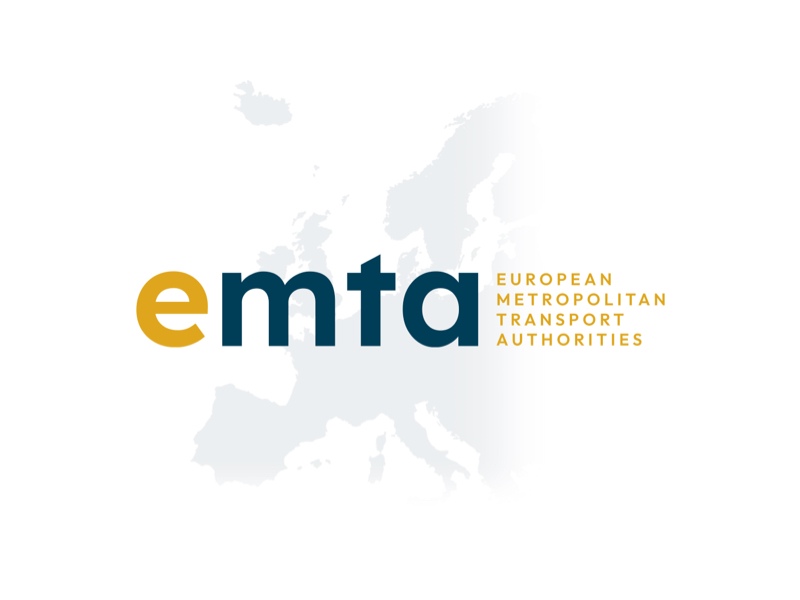Lisbon

Transportes Metropolitanos de Lisboa
Transportes Metropolitanos de Lisboa
Rua Cruz de Santa Apolónia
23, 25, 25A
1100-187 Lisboa
Portugal
Are you a registered member of EMTA? Log-in to access contact details.
Basic information
Name of the public transport authority: TML – Lisbon Metropolitan Transport
Name of the PTA in local language: TML – Transportes Metropolitanos de Lisboa, E.M.T, S.A.
Other public transport trademarks: Carris Metropolitana is a brand for buses in the Lisbon metropolitan area. Navegante is a brand for the common fare system and ticketing in the metropolitan area of Lisbon.
Geographical area: TML is a public company owned by the Metropolitan Area of Lisbon (AML). AML is an association of 18 municipalities from the Lisbon metropolitan area (NUTS II), around the Tagus River – Alcochete, Almada, Amadora, Barreiro, Cascais, Lisboa, Loures, Mafra, Moita, Montijo, Odivelas, Oeiras, Palmela, Seixal, Sesimbra, Setúbal, Sintra e Vila Franca de Xira.
Inhabitants in the PTA area: 2.9 million
Responsibilities
Ticketing:
TML manages the metropolitan fare and ticketing system.
Procurement:
TML is responsible for the 4 bus public transport contracts for the metropolitan area of Lisbon under the common brand Carris Metropolitana, all launched under a public international tender.
Rolling stock and depot ownership:
TML does not own rolling stock nor depots.
Public transport planning:
TML is responsible for the planning of the bus services in the 4 contracts of Carris Metropolitana. TML defines the stops, the routes, the fares and indicates the timetable (30 minutes).
Development of mobility policy / Transport system planning:
TML is developing the Metropolitan Sustainable Urban Mobility Plan for the metropolitan area of Lisbon. The work is underway together with the 18 municipalities.
TML is a transport authority for the inter-municipal and interregional bus public transport, delegated by AML, and for the local buses, delegated by the municipalities. Urban planning is a competence of the municipalities.
Marketing of public transport:
TML is directly responsible for the marketing and client support of Carris Metropolitana (the brand for the buses in the metropolitan area) and of Navegante, the fare and ticketing system for the all-region, and all operators.
Passenger information:
TML is responsible for the online information – on TML’s website Carris Metropolitana, but also on third-party apps such as Google Maps, Citymapper and Moovit. As defined in the Carris Metropolitana contracts, the operators are responsible for information on stations and stops.
Organisational model
Limited company
TML is a public company 100% owned by the Lisbon Metropolitan Area (AML), a public association of 18 municipalities. It works as a transport authority with the main functions of i) ticketing manager for all modes under the brand Navegante, and ii) bus service provider by subcontracting under Carris Metropolitana. It also has competences in the development, management, and operation of parking and mobility services. TML also studies, plans and implements mobility solutions.
TML has a Board of Directors, a Metropolitan Mobility Council, with AML and the mayors of the 18 municipalities, and a Technologies Consultive Council, with the PT operators of the Lisbon metropolitan area. The strategic decisions are defined by AML.
Transport service contracting
Procured by the PTA: someurban buses*, regional buses within the PTA
Not procured by the PTA, but most/all services accept PTA tickets: some urban buses*, regional buses stretching outside of the PTA, metro, commuter trains, regional trains, trams, light rail, ferries
*The urban buses in Lisbon, Barreiro and Cascais are owned or contracted by the municipalities, but they accept the common fare.
Current developments
As of 2024:
The metropolitan SUMP for the metropolitan area of Lisbon will create an integrated vision and proposals for the mobility and transport system for the region.
Several strategic projects are currently under development, such as a high-speed line, improvements in railway services, expansion of the subway network, and new BRT and LRT lines.
Considering the ITS systems, the progressive dematerialisation of ticketing is ongoing.

